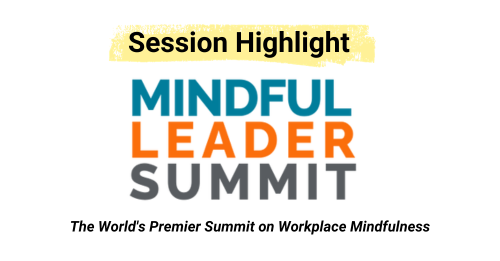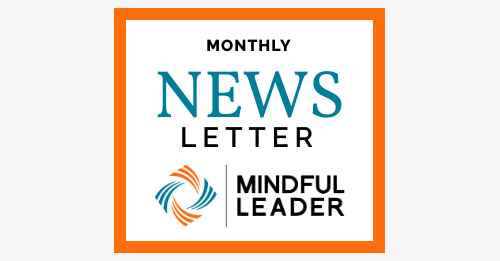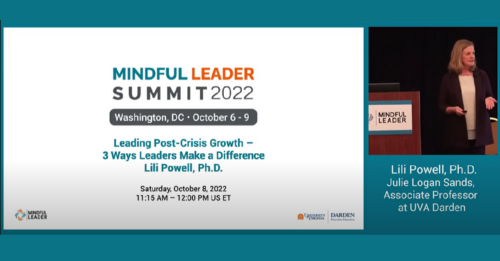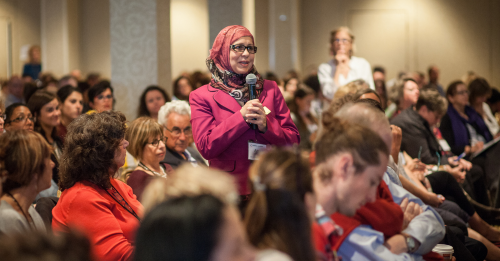Blog
The Power of Love & Connection in a World of Noise & Fear
Key Highlights:
- Embodied Mindfulness for Inclusive Leadership: Utilize embodied mindfulness to address world challenges and develop leaders who are inclusive and impactful.
- Context Matters: Emphasize the importance of considering context in mindful awareness, including external factors like societal issues, conflicts, and fears.
- Paradox of Prediction and Perception: Explore the brain's role as a predicting organ and the paradox it presents in shaping perceptions, acknowledging both limita…
Unlocking Compassion: 8-Step Gestalt Empty Chair Practice
By The Mindful Leader Team
The Empty Chair Technique is a valuable tool for self-exploration and emotional healing. By engaging in this experiential exercise, you can gain a deeper understanding of your inner conflicts and emotions, paving the way for personal growth and positive change. It is a talk therapy exercise commonly used in Gestalt therapy which was developed by Fritz Perls in the 1940s. It is designed to allow you to express your thoughts and feelings as if you were talking to a spec…
Mindfulness @Ernst & Young
Key Highlights:
- Make mindfulness relatable and accessible. Avoid spiritual or esoteric language and focus on tangible benefits.
- Build a network of mindfulness champions. Start small and gradually build your network, pitching the concept to potential champions at every introductory class.
- Collaborate with curriculum developers to integrate mindfulness into the learning and development curriculum. Ensure that programs remain true to their core principles while making them accessible and pra…
October Monthly Newsletter
|
Hello Mindful Leaders, What 3 ways can we lay down the foundations for healing and understanding? What stood out and was different from the 8th Mindful Leader Summit? How can we harness the power of stretching to find mindful moments throughout our workday? Curious about what articles stood out over the last 30 days? Having a hard time keeping up with our content-packed weekly newsletters? We've got you covered. Enjoy, and if you're looking for this month's top LinkedIn Articles just s… |
Bridging Divides: Leading Mindfully in a Polarized World
By Mindful Leader Team
In a world inundated by duality, there's a pronounced urge in the human psyche to choose sides. Whether it's political affiliations, brand loyalty, or social ideologies, this dichotomy is pervasive. But what drives this impulse? And in a climate that's ever polarizing, how can mindful leaders navigate these choppy waters? Let’s explore.
The Psychological Urge to Belong
At the core of our need to align with a group or a set of beliefs, is our intrinsic desire for belongi…
Leading Post-Crisis Growth – 3 Ways Leaders Make a Difference
A thought-provoking session at the 2022 Mindful Leader Summit led by Lili Powell, Ph.D., explored the role of resilience and attunement in leadership. This article delves into the insights shared during this session, highlighting the profound impact of leadership on guiding individuals and teams toward growth in the aftermath of adversity.
Why Resilience Matters
The central question addressed during the session was, "Why do some individuals thrive and grow after facing adversity, while other…
3 Tips to Support Your Mental Health during Tumultuous Times
By The Mindful Leader Team
As the tragedies between Israel and Palestine unfold right before our eyes, there's this collective emotion, this palpable anguish, and a quest for clarity that's proving difficult for many. The weight of it all can press on our mental landscapes. Let's walk through some insights on how to sail these choppy waters, underlining the need for genuine emotional resonance, wise media habits, and the unparalleled strength found in patience and giving things some room.
1. E…
October Mindfulness and Workplace Wellness Research Round-Up
By The Mindful Leader Team
This month, we look at mental health in the workplace according to three different sources: the CCLA’s 2023 corporate mental health benchmark report, the 2023 Workplace Wellness Survey, and the 2023 Employer Mental Health Report Card. Then, we’ll explore one of the first qualitative studies on mindfulness training in healthcare professionals as well as a new study exploring the relationship among mindfulness, meaning in life, psychological resilience, and depression. …
5 Reflections from the 8th Annual Mindful Leader Summit
By Mo Edjlali
A little over a week ago we wrapped up the 8th Annual Mindful Leader Summit. Leading up to the summit, in what's become something of a pre-Summit ritual, I often find myself overwhelmed with the meticulous details, the pressure of making sure our speakers and attendees are well taken care of, and silently declaring, "This is the last time I do this!" By the time the last echo of applause subsides in our closing session, I'm riding an energy wave, already envisioning the next Summ…
Boost Your Workday: 5 Quick Mindful Stretching Practices
By The Mindful Leader Team
In the hustle and bustle of a busy workday, it's essential to prioritize our well-being and physical health. One often overlooked aspect of our health is stretching. Incorporating mindful stretching practices into your workday can enhance productivity, reduce stress, and prevent muscle tension. In this article, we highlight five simple stretching exercises that you can easily integrate into your daily work routine to boost your overall well-being.
The instructions be…









